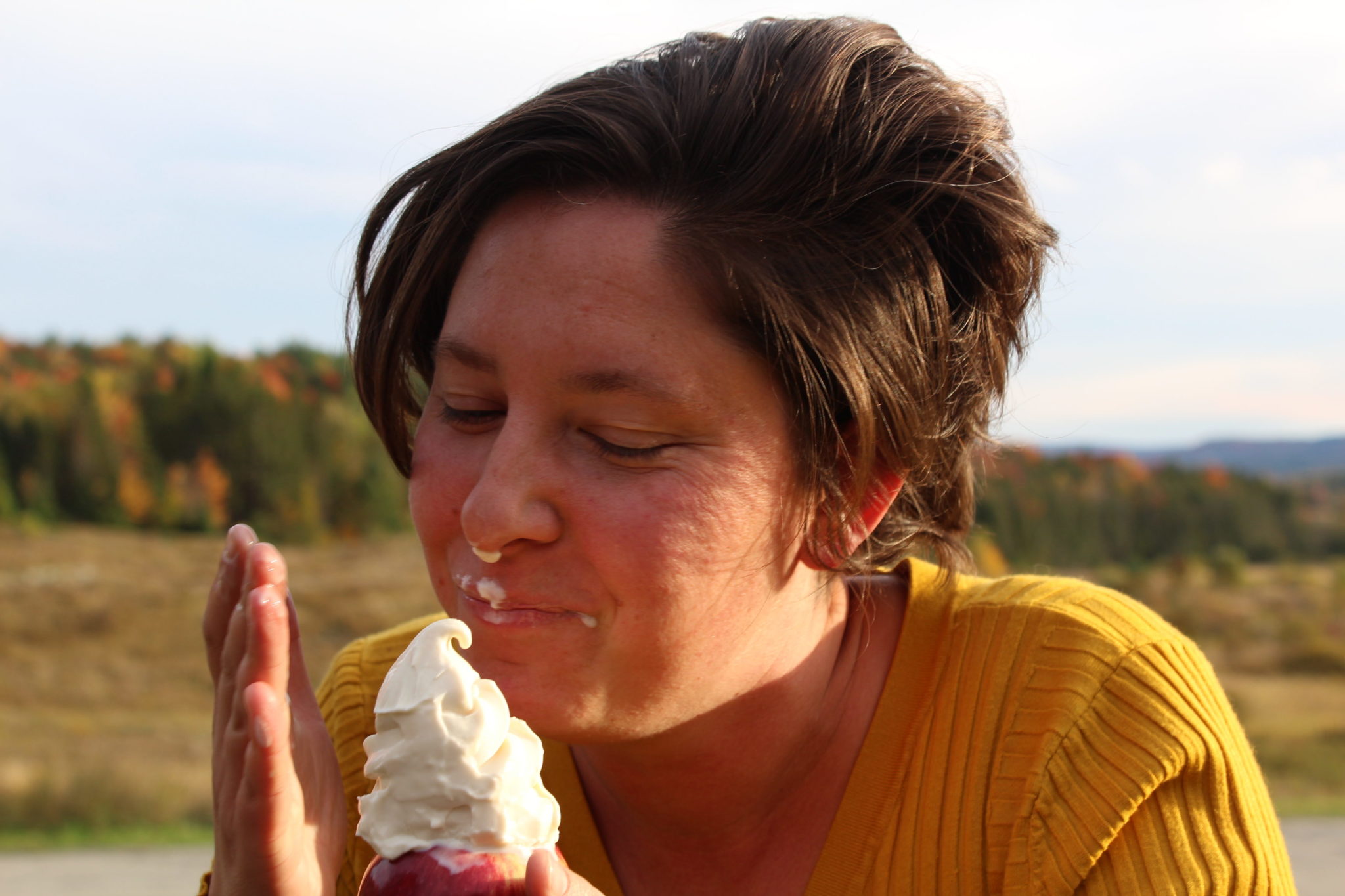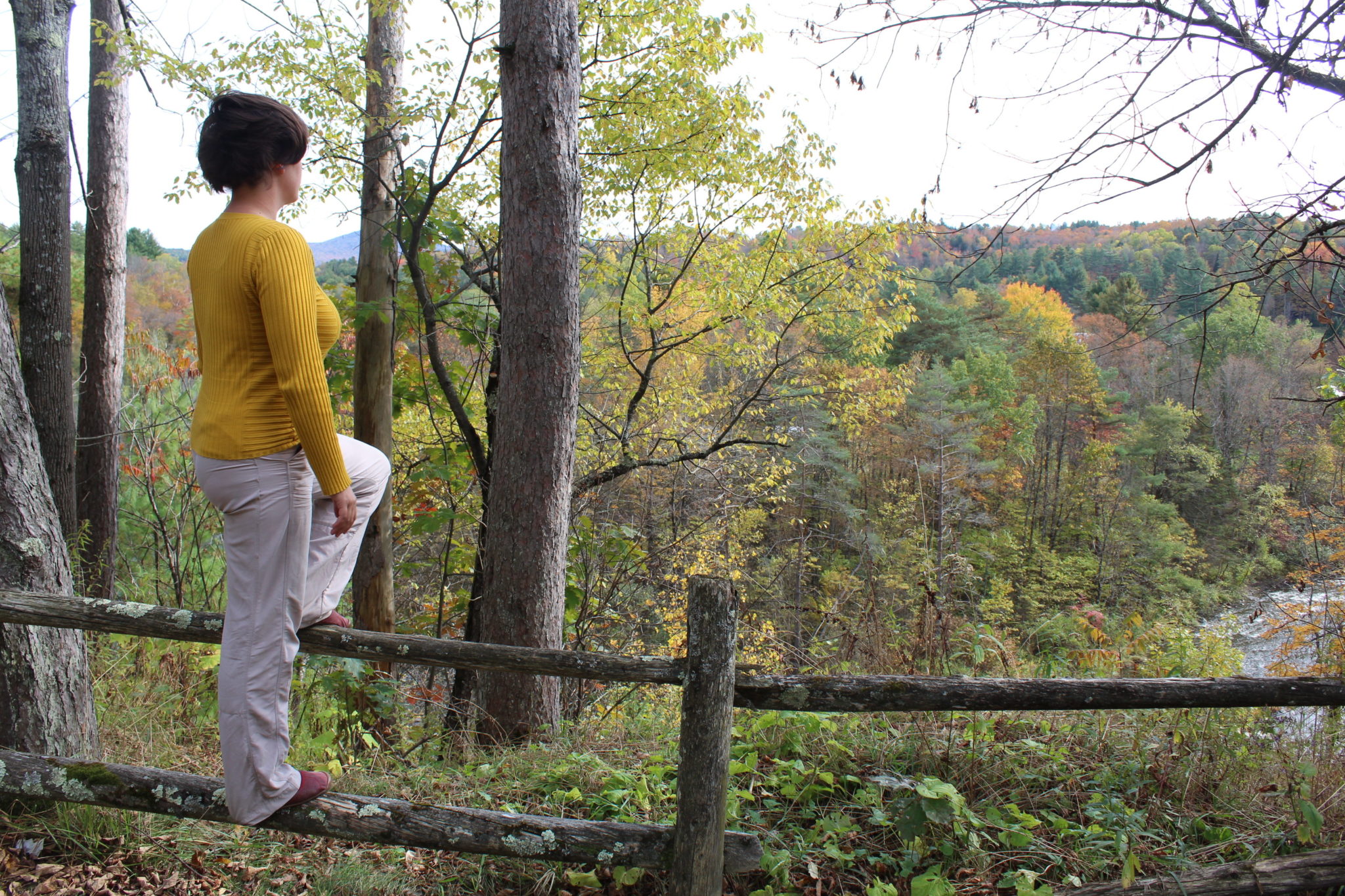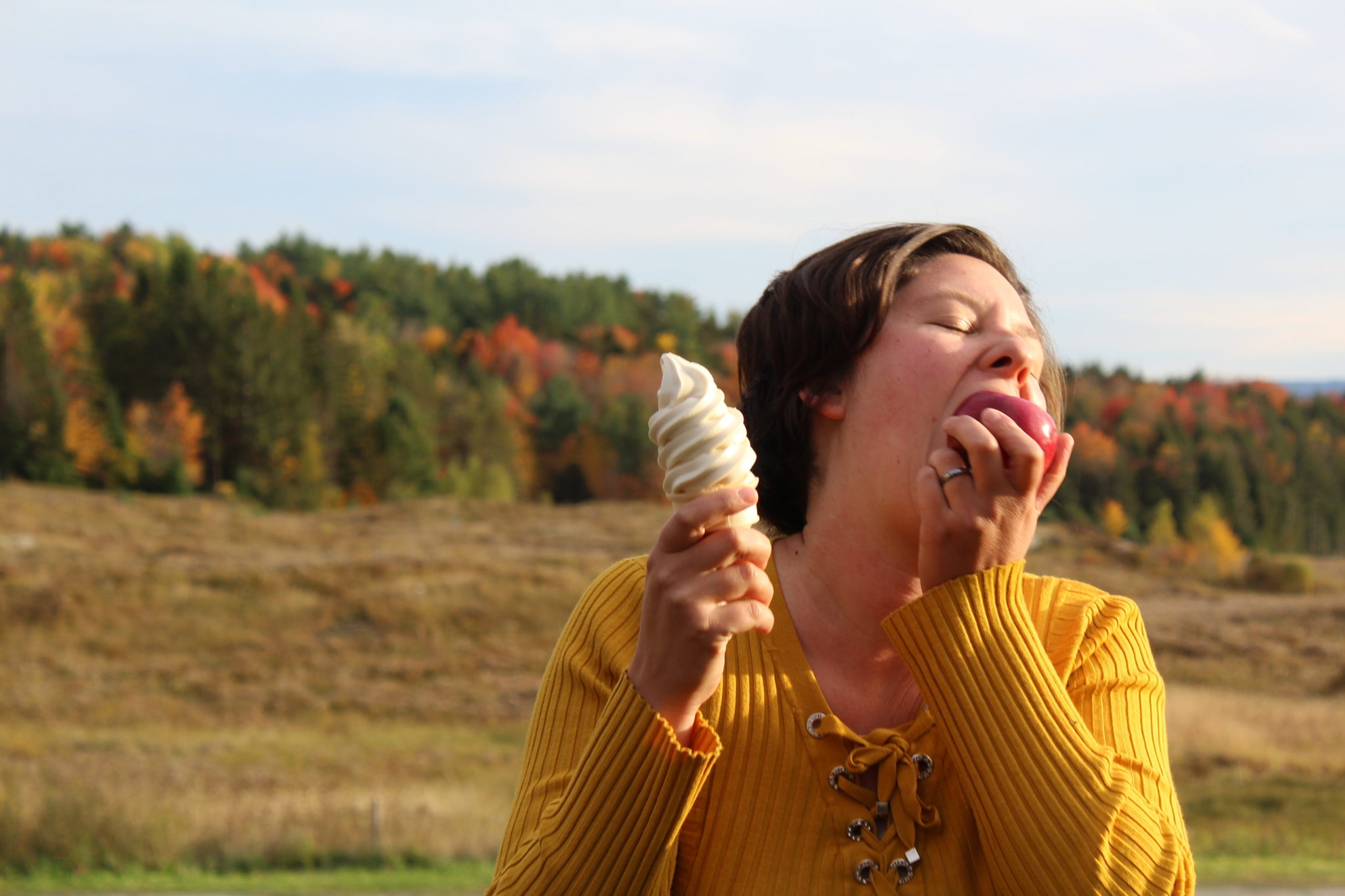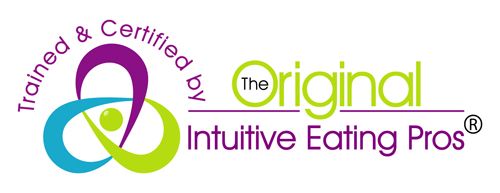For me, creating a nourishing relationship to food has been a lifelong journey.
I didn’t start life believing that food was all-important; in fact, my earliest memories center on the joy I took in creating art, dancing ballet, and writing poetry. I ate to fuel my fun, and that was enough.

But as I grew, my family and culture began to teach me that food and body just weren’t that simple. My family didn’t have money for lots of “treat” foods, and I learned that committing the “sin” of eating a slice of cake or bowl of ice cream would result in the failure of “getting fat” anyway. My mom even locked the fridge to keep me from eating too much.
I started to see food as something to crave and resist.
As I got older, I suffered from paralyzing stomach cramps, gas, bloating, and low energy. Doctors told me that Celiac disease, anemia, and thyroid disease were behind some symptoms, but these labels (and the accompanying diet prescriptions) didn’t keep me on the road to health. I was angry at my body’s betrayal, and couldn’t let go of the eating “mistakes” I was clearly making every day. Food became an enemy, a relationship that only soured as I entered my size-obsessed teen years.

I blamed my body for everything.
If I didn’t get a ballet solo, it was because I was “too fat.” If I failed to win a writing competition, it was because my mind had been weakened by eating cheese. I had been given an imperfect physical home to spend my life inside, and ate and purged and ate to dull the pain of that reality.
My relationship to food swung wildly between craving, hating, needing, and despairing.
I started my nutrition studies assuming that food was the explanation for and solution to everything. I cut out gluten, meat, dairy, sugar, processed food, eventually all animal products. I thought that all these restrictions would free me from the tyranny of my body. Instead, I was constantly starving or binging, returning to the fridge many times each day to sneak a spoonful of peanut butter straight from the jar.
My relationship to food had become all-consuming, but I knew deep down that there must be a better way.
Why was food so tangled up in my emotions and body image? Why did eating feel so wrong, even when I tried to eat in a way that was “right?”
Luckily, when I stopped to take a breath, my body was there waiting to catch me. I lived in a student dining co-op in college, where I discovered the power of abundance. Our pantry was a feast of local foods like grapes, cider, tempeh, salad greens, fresh cheese, chocolate chips, and even peanut butter in fifty pound buckets.
As I loosened some restrictions and simply ate, I realized that food could be nourishing and sustaining. I acknowledged my cravings more clearly, finding treats I enjoyed and including animal protein now and again.
I was able to respect my body’s need for a gluten-free diet without punishing it by taking everything else away too. I shifted my focus to what I could include rather than exclude, even gaining more energy for creative projects.
Eating was becoming healing, but I had more work ahead of me.
I still assumed that eventually, with a repaired connection to my body, that I would shrink down to my “normal” (i.e. 16-year old) weight. In the nutrition master’s program at Bastyr University, I gained wisdom from the “whole person” focus; I learned that joyful movement, rest, sunlight, community, love, pleasure, and laughter are just as important as vitamins and minerals. I was learning that what I put in my mouth wasn’t necessarily as important as how I spent my days, and I was finding my purpose: to help others with complicated relationships to food find peace, simplicity, and mind-body health.

But shadowing all my training was our culture’s discomfort with fat bodies. As I took more steps forward on my own journey and supported others, it became clear to me that this stigmatization of weight was a tremendous boulder blocking the end of the healing road. I would practice balanced eating and movement and take care of my emotional needs, but the number on the scale didn’t budge. It took a long time, but I eventually learned that that was ok, and I threw away that damn scale.
My final step in building a new relationship to food and body was externalizing all that blame I had carried around for years. My size wasn’t a problem, it wasn’t under (or out of) my control, and it wasn’t my fault. The fact that our culture tells us the opposite through constant weight-stigmatizing messages is wrong. It had become clear to me that a size-focused approach to health actually stands in the way of real health, and I studied the science that backed this up. I also learned that bodies aren’t perfect, they suffer, and that that is also ok. And so, anchoring myself back in the physical reality of my hard-working body with intuitive eating and movement, I learned that when I treated my body with love, respect, and pride, and let it do the fun things it wanted to do, that it was actually a pretty joyous home to spend my life inside. Finally the fresh air of freedom poured in: my relationship to food became one of pleasure and satisfaction.
I’m glad my journey with food has led me to become an anti-diet dietitian nutritionist. I love helping others focus less on food and more on living life. Food is no longer such an enemy for me, but I know firsthand how difficult the journey can be. I also know that whatever boulders big and small lie in the road ahead, that our bodies will still be there to catch us when we fall.
With empathy and understanding, I can support you on your own unique food and body healing journey.
I strongly believe that when it is easy to feed ourselves– when food is simple, enjoyable, and brings energy, and when we have released our food fears and emotional entanglements with food– that we can reach our highest selves and accomplish our biggest dreams.
How I’m Unique
My own journey with food allows me to approach your health journey with empathy and understanding.
I am intuitive, and can help you find the problem behind the problem.
I am not perfect, and am always working to improve my own relationship to food and body.
I follow a non-diet approach and help you craft self-care that is enjoyable and sustainable.
I am not the food police and won’t reward you for kale smoothies or punish you for chocolate.
I tell the truth, and will help you rebel against negative body messages that diminish your power.
I love complexity, and have the clinical training to help you support your whole person well-being amidst health challenges like cancer, digestive disease, diabetes and autoimmune disease.
I am creative and draw from many approaches: Intuitive Eating, Health at Every Size, cognitive behavioral therapy, motivational interviewing, somatics, narrative therapy, grief counseling. Your treatment course will always be unique.
I support your own body wisdom. You are the leader of your journey, and you control where it leads. I help you learn new skills and find resources to become self-sufficient.
I understand natural medicine. Although I focus on food first, I can help you decide whether nutritional supplements, botanicals, or physical medicine treatments fit in your health journey.
I am a good listener and will offer you the time and space you need to tell your own story. I can’t wait to help you become your best self through a balanced, nourishing, and celebratory relationship to food!



